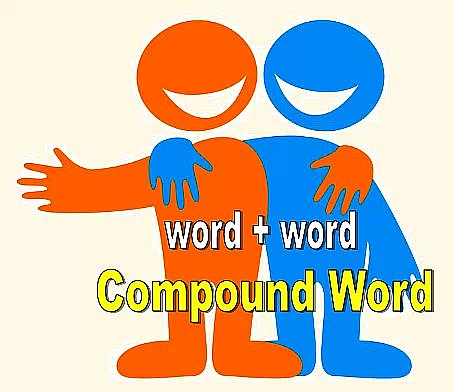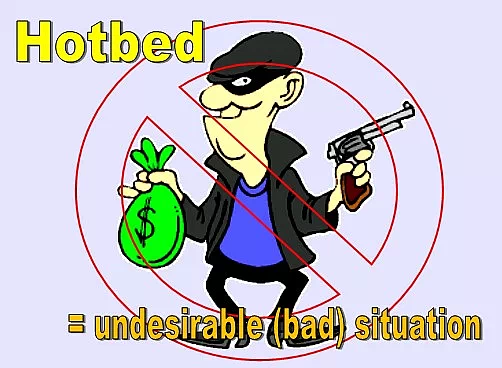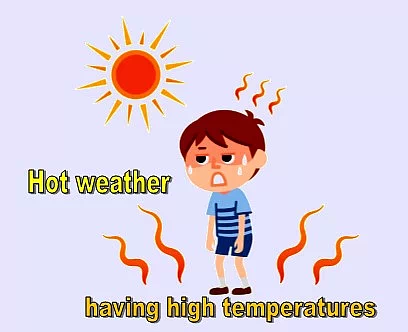Part: 01
Compound word is a combination of two or more separate words.
Classification of compound words:


Word + Word = Compound Word
True compound words are a group of words that have a fixed form and a special meaning.
Example:
- Hotbed = an undesirable state or condition.
- The town is small but a hot bed of crime.

Note:
It has totally different meaning as the individual meanings of the two words hot and bed and can’t be said as – “The bed is hot”.
Some more examples:
- Hot air: meaningless talk or ideas.
- Hotchpotch (BE) / Hodgepodge (AE): irregularly mixed things or arrangement.
- Hot-cross bun: a small sweet cake which is eaten on Good Friday, just before Easter.
- Hot dog: a cooked Frankfurter or other Sausage in a long bread roll.
- Hot flush (BE) / Hot flash (AE): A sudden feeling of heat in the skin (experienced esp. by women during menopause).
- Note: BE = British English. AE = American English
Free compound words are a group of words that simply appear together in a sentence or phrase and have no special meaning.
Example:
Hot weather = A period of usually high temperatures.
- I felt a bit hot weather there. (The weather was hot there).

Here the meaning is not fixed or special. It simply conveys the basic
meanings of the two words and can be said as “the weather is hot” too.
Some more examples:
- Face cream = cream used for face.
- Walkie-talkie = A small portable radio instrument.
- Dry cell = A small cell (battery) containing no free liquid.
- Toll-free = having no toll levied for its use.
- Fair deal = Fair treatment.
- Storehouse = A depository for goods.
The formation of compound words:
Compound words are formed from nouns, verbs, adjectives, and adverbs.
Note: Generally compound words are formed with the combinations of two or more of the above
words.
Noun + Noun:
Examples:
- Airhostess, armchair, doorstep, earring, haystack, hot air, hot bed, hot-cross bun, hot dog, hotchpotch (BE) / hodgepodge (AE), hot flush (BE) / hot flash (AE), manservant, moneylender, moonlight, newspaper, oilcloth/oilpaper, postman, railway, ringleader, shoemaker, signpost, taxpayer, teaspoon, trapdoor, windmill, etc.
Noun + Verb:
(Compound Verb)
Examples:
- Backbite, earmark, wayleave, gold rush, etc.
Noun + Adjective:
- (Compound Adjective)
Examples:
- Handmade, homesick, lifelong, skin-deep, waterproof, lovelorn, etc.
Verb + Noun:
Examples:
- Breakfast, cutthroat, daredevil, makeshift, passport, pickpocket, spendthrift, stopgap, telltale, etc.
Adjective + Noun:
Examples:
- Black-and-white, madman, quicksilver, stronghold, nobleman, shorthand, sweetheart, etc.
Adjective + Verb:
- (Compound Verb)
Examples:
Dry-clean, safeguard, whitewash, etc.
Adjective + Adjective:
- (Compound Adjectives)
Examples:
Lukewarm, readymade, red-hot, widespread, etc.
Gerund + Noun:
Examples:
- Blotting paper, Drawing room, laughingstock, looking glass, skipping rope, walking stick, steppingstone, etc.
Adverb + Noun:
Examples:
- Afterthought, downfall, foresight, offshoot, outpatient, overcoat, overdose, overload, postscript, undertone, upland, etc.
Verb + adverb:
Examples:
- Breakdown, diehard, drawback, farewell, go-between, lookup, runaway, sendoff, standstill, walkover, etc.
Adverb + Verb:
Examples:
- Income, intake, offspring, outburst, outcast, outcome, outcry, outfit, outlet, outlook, output, outset, upkeep, upstart, etc.
Adverb + Participle:
- (Compound Adjectives)
Examples:
- Everlasting, never-ending, outspoken, well-dressed, etc.
Note: Abbreviations used:
BE = British English; AE = American English
